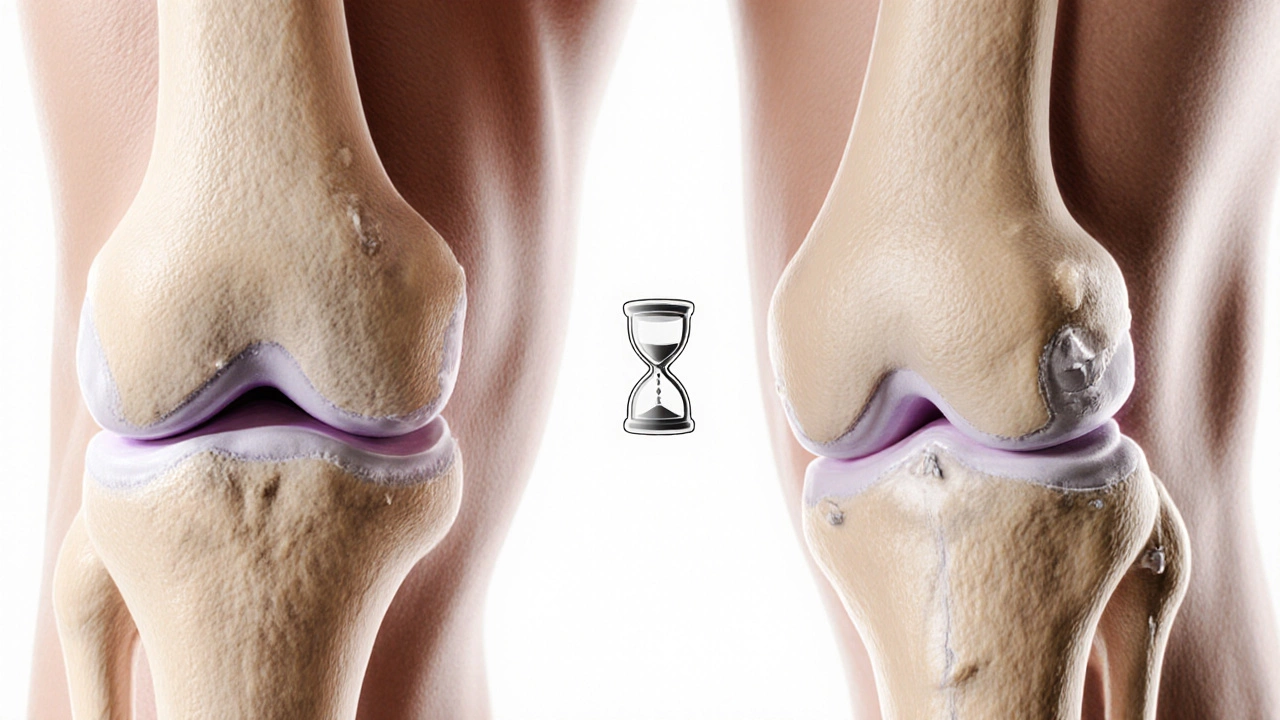Delaying knee replacement raises infection, clot and revision risks, worsens pain and mobility, and adds hidden costs. Learn the medical, functional and financial consequences of waiting too long.
Read MoreKnee Replacement Delay: Understanding the Impact of Postponing Surgery
When you hear the term knee replacement delay, the postponement of a planned knee arthroplasty, often caused by health, financial or logistical reasons, postponed knee replacement, it usually triggers a cascade of questions. Knee replacement delay isn’t just a calendar shift; it reshapes the whole treatment pathway. It encompasses decision‑making about when the joint replacement should happen, and it requires a thorough orthopedic consultation, a detailed assessment by a specialist to weigh risks, benefits, and timing before any incision. The core procedure, knee replacement surgery, the operation that restores function by replacing damaged joint surfaces with prosthetic components, may feel like a one‑off event, but its success hinges on when it’s performed. Delays often stem from uncontrolled medical conditions like diabetes or heart disease, insurance approvals, or even the lure of medical tourism, seeking lower‑cost surgery abroad, which adds travel planning and legal considerations to the mix. Each of these factors reshapes the risk profile and can either improve preparedness or introduce new complications.
Putting off the operation has a ripple effect on post‑operative rehabilitation, the structured physical therapy program that restores strength, range of motion and daily function after knee replacement. When the surgery is delayed, the muscles around the knee often weaken further, making the rehab phase longer and more intense. Studies from Indian orthopedic centers show that patients who wait beyond the ideal window (usually 6‑12 months after severe arthritis diagnosis) report higher pain scores during rehab and slower functional gains. Financial aspects tie in tightly—high cost of living, regional expenses that affect affordability of surgery, hospital stays, and follow‑up care can push patients to seek cheaper alternatives, sometimes at the expense of quality or follow‑up support. Insurance coverage quirks, such as Medicare limits for seniors, also dictate timing; many seniors scramble to schedule surgery before benefits change, which can create rushed decisions. All these elements—health status, financial pressure, insurance rules, and even the desire to travel for cheaper care—create a complex web that decides whether a delay is a strategic pause or a costly setback.
What You’ll Find Below
Below this overview you’ll discover articles that dive deeper into each piece of the puzzle: from how to talk to your orthopedic surgeon about timing, to real‑world stories of patients who chose medical tourism, to practical tips for keeping your knee strong while you wait. Whether you’re weighing the pros and cons of postponing surgery, navigating insurance hurdles, or simply curious about the rehab timeline for older adults, the posts ahead give you concrete, actionable information to help you make an informed choice.





